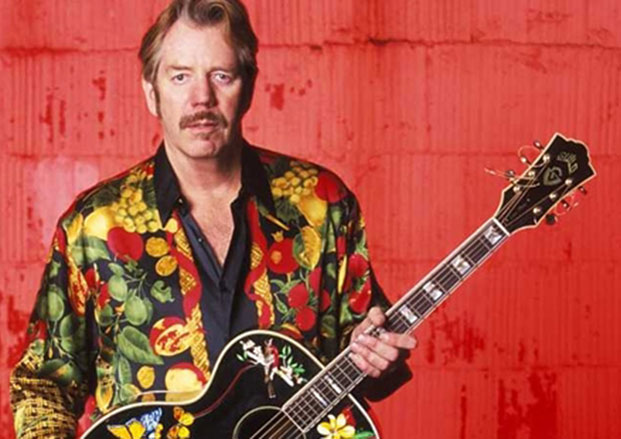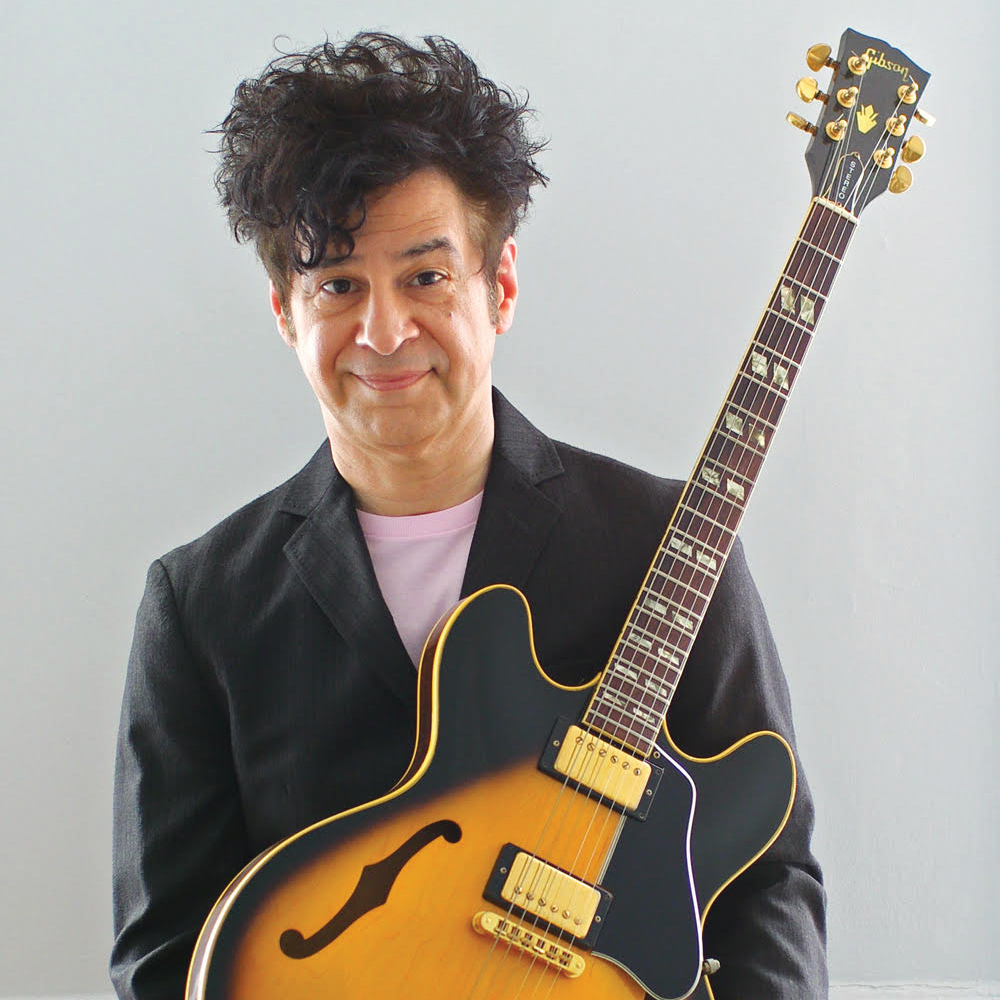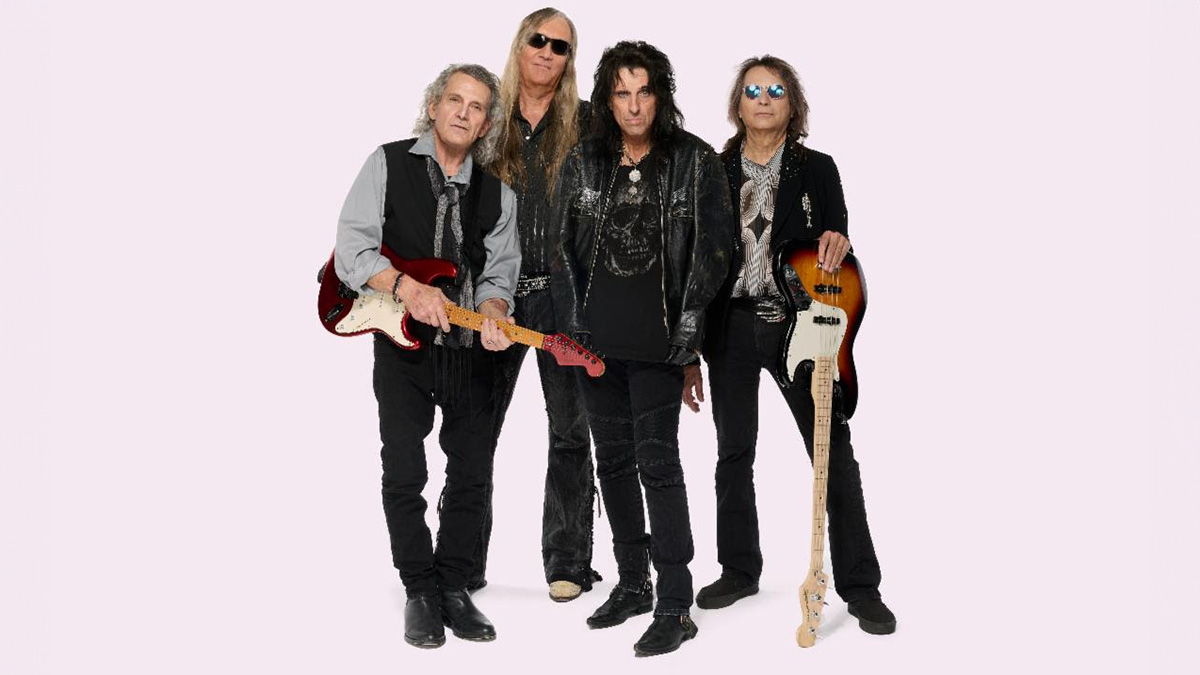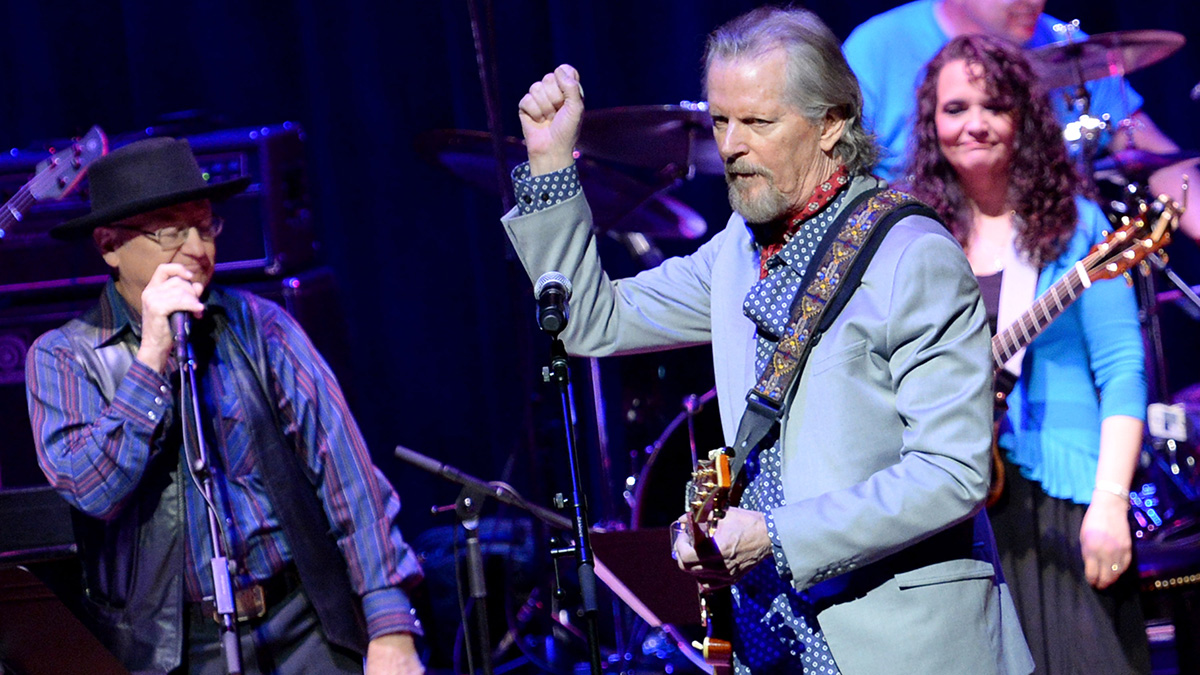Dan Hicks, Idiosyncratic Standard Bearer of Acoustic Hot Jazz, Dead at 74

Guitarist Dan Hicks died on February 6 following a two-year battle with cancer. He was 74.
Hicks, who founded Dan Hicks and His Hot Licks, was diagnosed with throat and liver cancer in 2014. His death was announced on his website by his wife, Claire.
“My darling darling husband left this earth early this morning. He was true blue, one of a kind, and did it all his own way always,” she wrote.
“To all who loved him, know that he will live forever in the words, songs, and art that he spent his life creating. He worked so hard on each and every detail—they are all pure Dan.”
Born in Little Rock, Arkansas, on December 9, 1941, Hicks held a unique place in the pop world, performing an acoustic form of the “hot jazz” swing music popularized from the Twenties through the Forties. Into this, he drew disparate styles, calling on country, pop and gypsy music, and often infusing his songs with humor, evident in titles like “How Can I Miss You When You Won’t Go Away?”
- After picking up the guitar in 1959, Hicks moved to San Francisco, where he became part of the Bay Area’s emerging folk scene, which included Paul Kantner, the Jefferson Airplane founding guitarist who died on January 28.
- After a stint as drummer for San Francisco psychedelic pioneers the Charlatans, Hicks moved in the opposite musical direction when he formed Dan Hicks and His Hot Licks in 1967 with violinist David LaFlamme. When LaFlamme left to form It’s a Beautiful Day, he was replaced by jazz violinist Sid Page. Hicks and Page were supported by singers Sherry Snow and Christine Gancher, guitarist Jon Weber and bassist Jaime Leopold. The group featured no drummer.
- A 1969 contract with Epic led to the recording of their debut album, Original Recordings, produced by Bob Johnston, who helmed classic Sixties albums by Bob Dylan, Simon and Garfunkel, and Johnny Cash. The Hot Licks disbanded in 1971, but Hicks reformed the group with a revised line-up and released three more albums before dissolving the band again in 1974. The decision came at an odd time. Hicks had just landed on the cover of Rolling Stone, giving the group a chance at broader appeal in the diversified music climate of the times.
- “I didn’t want to be a bandleader anymore,” Hicks said at the time, explaining his decision. “It was a load and a load I didn’t want. I’m basically a loner.... My role as leader started diminishing, but it was my fault because I let it happen; I cared less as the thing went on.”
- The group reunited in 1989 for an Austin City Limits taping, and in the early Nineties Hicks formed the Acoustic Warriors, which played in a style like that of the Hot Licks. Hicks began using the Hot Licks name again in 2000.
With his idiosyncratic musical style, Hicks was unlikely to become a hit maker, but he had many fans among more popular musicians. In 1984, Thomas Dolby covered Hicks’ “I Scare Myself” on his hit album The Flat Earth. Released as a single, the song reach Number 46 on the U.K. Singles Chart.
Hicks made a “comeback” in 2000 with the album Beatin’ the Heat, which featured assistance from fans that include Elvis Costello, Tom Waits, Brian Setzer, Rickie Lee Jones and Bette Midler. Reviewing the album on InsiderOne.net, Michael Goldberg wrote, “When he first appeared on the scene in the ’60s, Hicks was a young guy playing old sounds. But there was something fresh, even original about his approach then, and he hasn’t lost his special touch. His voice and his sly, humorous point of view set him apart from any crowd. Now that he’s an old-timer, his music seems even more solid and substantial.”
Get The Pick Newsletter
All the latest guitar news, interviews, lessons, reviews, deals and more, direct to your inbox!
The album revived Hicks’ career and led to subsequent releases. In recent years he could occasionally be seen performing jazz standards in San Francisco, backed by the Hot Licks, Acoustic Warriors and others.
Hicks announced his cancer diagnosis on his website in March 2015.
Though no one ever came up with a simple way to describe his music, they were in good company. Hicks himself found his style hard to explain.
“My music is kind of a blending,” he said in a video interview that took place on July 3, 2007. “It starts out with kind of a folk music sound, and we add a jazz beat and solos and singing. We have the two girls that sing, and jazz violin, and all that, so it’s kind of light in nature, it’s not loud, and it’s sort of, in a way, kinda carefree. Most of the songs are, I wouldn’t say funny, but kinda maybe a little humorous. We all like jazz, so we like to play in a jazzy way, with a swing sound, you know, so I call it ‘folk swing.’”
Whatever you called it, it was the sound of Dan Hicks.
Christopher Scapelliti is editor-in-chief of Guitar Player magazine, the world’s longest-running guitar magazine, founded in 1967. In his extensive career, he has authored in-depth interviews with such guitarists as Pete Townshend, Slash, Billy Corgan, Jack White, Elvis Costello and Todd Rundgren, and audio professionals including Beatles engineers Geoff Emerick and Ken Scott. He is the co-author of Guitar Aficionado: The Collections: The Most Famous, Rare, and Valuable Guitars in the World, a founding editor of Guitar Aficionado magazine, and a former editor with Guitar World, Guitar for the Practicing Musician and Maximum Guitar. Apart from guitars, he maintains a collection of more than 30 vintage analog synthesizers.
“I knew the spirit of the Alice Cooper group was back – what we were making was very much an album that could’ve been in the '70s”: Original Alice Cooper lineup reunites after more than 50 years – and announces brand-new album
“Such a rare piece”: Dave Navarro has chosen the guitar he’s using to record his first post-Jane’s Addiction material – and it’s a historic build











